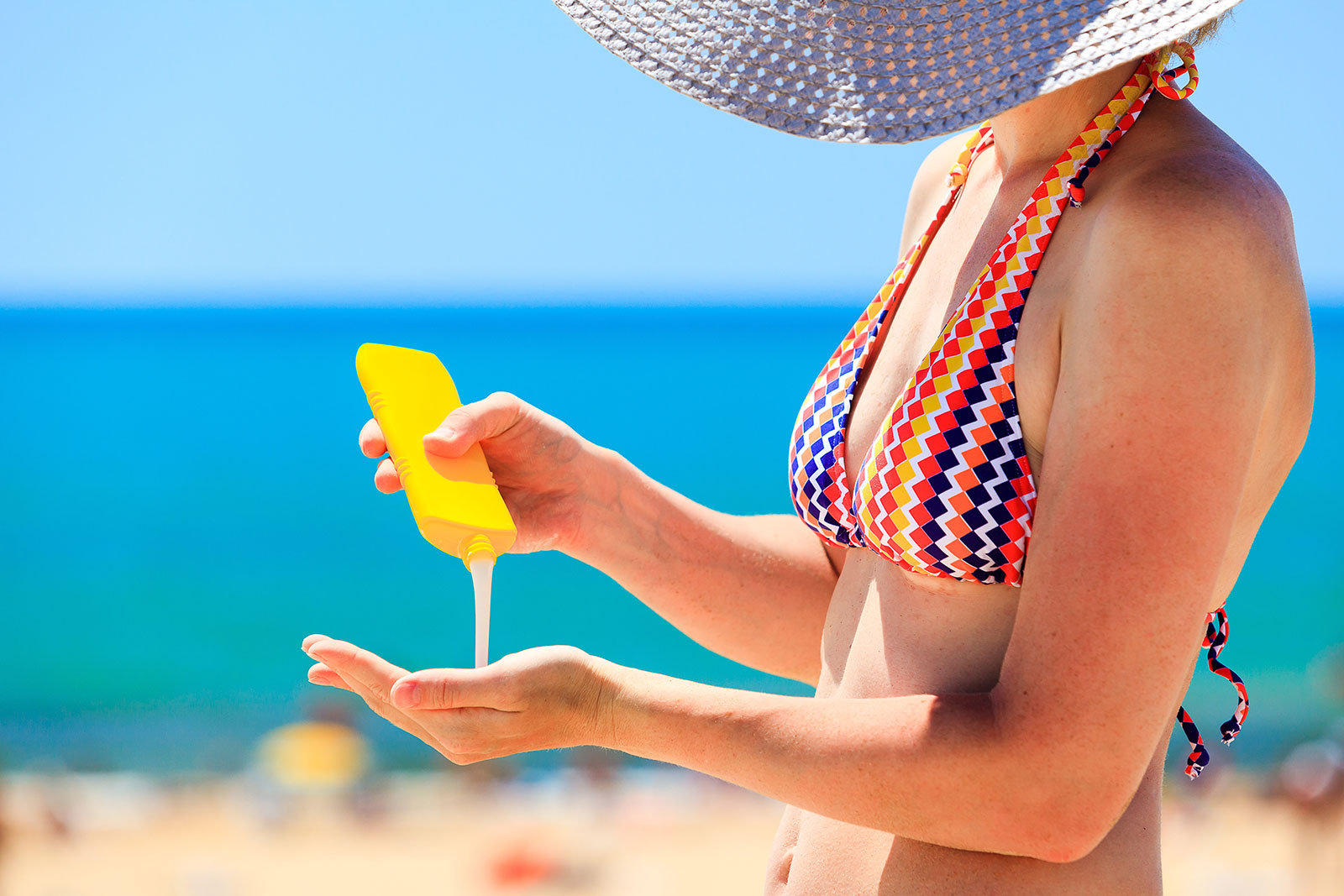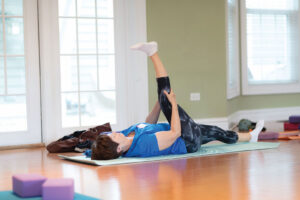After a long, grueling winter, there’s nothing more thrilling than a warm, sunny day. Although icy streets and sub-zero temperatures are gone until next season, the sun comes with its own problems: harmful ultraviolet rays. It’s time to reach for the sunscreen, but with so many products on the market, and so much conflicting information, how does anyone know what to choose?
For many, the answer is mineral (aka physical) sunscreen. As consumers seek alternatives to the conventional, often chemical-laden goods lining cosmetic and drugstore shelves, natural beauty and wellness products—including mineral sunscreens—have soared in popularity. But for people currently undergoing treatment or who are in remission from cancer (or living with other chronic illnesses), switching to natural products isn’t about keeping up with trends. Rather, it’s about finding more gentle yet effective means to take care of oneself in a body that may be experiencing side effects from medical treatment, or is more sensitive to chemical irritants and fragrances.
Even the most passionate clean-beauty and skincare fanatics might hesitate when it comes to natural sunscreens. That’s because a bad hair or makeup day is a temporary catastrophe, but improper sun protection could potentially have lasting consequences. People undergoing or who have completed cancer treatment may have even more cause for caution: Chemotherapy and other cancer treatments can increase photosensitivity (or the likelihood of getting burned), and those who’ve endured certain types of skin cancer, such as melanoma or basal cell carcinoma, may face the risk of recurrence.
A bad hair or makeup day is a temporary catastrophe, but improper sun protection could potentially have lasting consequences.
WHAT TO KNOW
With these concerns, along with misleading or confusing information about chemical ingredients, it’s no wonder selecting a new sunscreen can be a little stressful. While both types of sunscreen protect skin from the sun, chemical and mineral sunscreens work in different ways. Mineral sunscreens contain zinc oxide or titanium dioxide (or a combination of the two). When it’s applied correctly, it acts as a physical block between skin and sun. “Physical sunscreens actually prevent the radiation from getting through the skin,” explains Seattle dermatologist Dr. Heather Rogers.
Chemical sunscreens, in contrast, have to be absorbed into the body in order to work. “Most people [will] have certain parts-per-million of chemical sunscreens in their blood and in their urine,” Rogers says. Though she doesn’t believe these products cause cancer, Rogers is interested in discussions about whether chemicals used in sunscreen could disrupt hormone activity. According to a report from the Environmental Working Group, a review from the Danish EPA concluded most of the active ingredients in sunscreen lack information about their safety, and 16 of the 19 had no information about whether they may cause cancer. Additionally, “While the published studies suggest that several chemical filters interact with human sex or thyroid hormones, none of the ingredients had sufficient information to determine the potential risks to humans from hormone disruption,” the report states.
Though natural beauty products sometimes get dismissed as not as effective than their chemical counterparts, Rogers says this isn’t the case when it comes to sunscreen. “If you [compare] a singular ingredient […] zinc provides the best protection from the sun,” she says.
The Danish EPA concluded most of the active ingredients in sunscreen lack information about their safety, and 16 of the 19 had no information about whether they may cause cancer.
Though some may prefer the texture and feel of titanium-dioxide-based products to zinc oxide, Rogers says they are both good choices. “The difference between the two is that zinc provides a better protection from both UVA and UVB rays; it actually provides you with the broadest protection of any sunscreen,” she says. “Titanium does protect you from UVB, but it does not protect you from UVA as well.” She recommends looking for products containing at least 10 percent zinc oxide.
Whichever type of sunscreen you choose, proper application is always important. Follow the directions on the package, or consult your health care professional for their recommendations. And like conventional sunscreens, mineral sunscreens can be worn under clothes and used in conjunction with other sun-protection gear, such as hats, umbrellas, and clothing washed in detergents like SunGuard, which boosts the Ultraviolet ProtectionFactor (UPF) of fabric.
“It’s about investing the time at the beginning of summer,” Rogers says. “I’m going to go buy six bottles of sunscreen. I’m going to go get two sun shirts. I’m going to keep a hat in my car and I’m always going to have sunglasses, and I’m going to be prepared for the summer.” It may be annoying to prepare such a list, but once you do, you won’t have to worry about it for the rest of the summer. After all, having fun and enjoying the summer is the ultimate goal.







